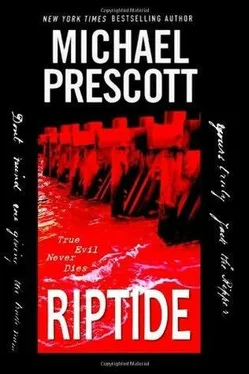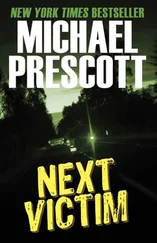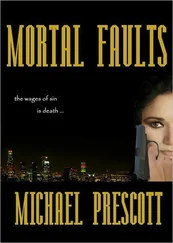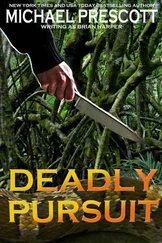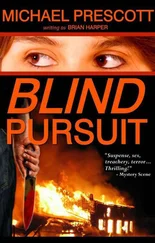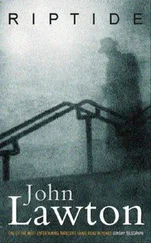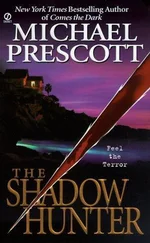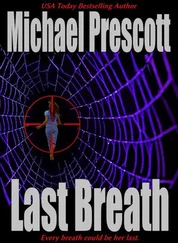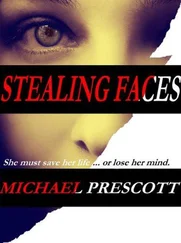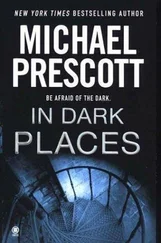Michael Prescott - Riptide
Здесь есть возможность читать онлайн «Michael Prescott - Riptide» весь текст электронной книги совершенно бесплатно (целиком полную версию без сокращений). В некоторых случаях можно слушать аудио, скачать через торрент в формате fb2 и присутствует краткое содержание. Жанр: Триллер, на английском языке. Описание произведения, (предисловие) а так же отзывы посетителей доступны на портале библиотеки ЛибКат.
- Название:Riptide
- Автор:
- Жанр:
- Год:неизвестен
- ISBN:нет данных
- Рейтинг книги:5 / 5. Голосов: 1
-
Избранное:Добавить в избранное
- Отзывы:
-
Ваша оценка:
- 100
- 1
- 2
- 3
- 4
- 5
Riptide: краткое содержание, описание и аннотация
Предлагаем к чтению аннотацию, описание, краткое содержание или предисловие (зависит от того, что написал сам автор книги «Riptide»). Если вы не нашли необходимую информацию о книге — напишите в комментариях, мы постараемся отыскать её.
Riptide — читать онлайн бесплатно полную книгу (весь текст) целиком
Ниже представлен текст книги, разбитый по страницам. Система сохранения места последней прочитанной страницы, позволяет с удобством читать онлайн бесплатно книгу «Riptide», без необходимости каждый раз заново искать на чём Вы остановились. Поставьте закладку, и сможете в любой момент перейти на страницу, на которой закончили чтение.
Интервал:
Закладка:
She bled out slowly. The wound was long but not deep. There was time to call for an ambulance, but she didn’t want an ambulance. After the E.R. patched her up, they would reunite her with her mother. She couldn’t go back. It was easier to die.
But she didn’t die, and she had Richard to thank for it.
She blinked, coming out of these memories. Slowly she turned away from the graves and headed back to her car. A folded flyer, a menu for a Thai restaurant, was wedged beneath the wiper blades. Something made her open it. Written across it in a brisk angular hand were six words, all in capitals.
I KNOW YOU HAVE MY BOOK.
She felt nothing at first, only numb unreality, as if the flyer were a figment in a dream. The numbness lasted just long enough for her to identify it as a defense mechanism against shock. With that thought, she snapped out of it.
She jerked around, looking everywhere at once, but whoever had left the note was gone. Or out of sight-hiding, watching her.
Her breath was coming hard and fast, and there was a funny weakness in her knees. She fumbled the car key out of her pocket and got the driver’s door open and slipped behind the wheel. She pulled the door shut, locking it.
The note shook in her hand. Over and over she read those same six words. They shouted at her.
But did they shout in Richard’s voice?
fourteen
She arrived home at 9:30, after picking up a replacement bulb for her UV lamp. Her message machine was blinking; Draper had called to say that he and a pathologist would be at the house at eleven to examine the human remains. She wondered why he hadn’t tried her cell, then realized she’d set it on vibrate during her dinner with Maura and had forgotten to change it back. It must have been buzzing away in her glove compartment.
There was still an hour and a half until his arrival. She installed the bulb, switched on the UV light, and studied the flyleaf pasted to the diary’s inside front cover. The signature, if there was one, failed to fluoresce; it remained hidden under a thick coat of black ink.
There was another test she could try. Sometimes concealed ink would emit infrared light when UV light was used as an exciter source. The technique was called IR fluorescence.
She got out her digital camera and fitted the lens adapter with an infrared filter. With the camera mounted on a tripod, she took a time exposure of the flyleaf. She transferred the purple-red image to her laptop and converted it to grayscale.
Success. The technique had brought out the canceled writing.
It was a signature, neatly written in a steady hand: Edward Hare.
Since the early pages of the diary had been removed, she guessed that Hare had begun the journal with no expectation that it would contain anything incriminating. When his thoughts had turned in a criminal direction, he must have torn out the initial pages and obliterated his signature.
It was probably his real name, then. Not an alias.
And not her great-grandfather’s name. She should have felt relieved about that, but the diarist had written that he was traveling to America under an assumed name. That name might have been Graham Silence.
Silence-an appropriate name for a man keeping secrets.
She flipped through the indexes of her Ripper books but found no mention of Edward Hare. Next stop, the Internet. She typed “Jack the Ripper and Edward Hare” into a search engine. No hits.
The name “Edward Hare” alone brought up a few hundred hits, but nothing that seemed relevant.
“Jack the Ripper” on its own brought up nearly two million pages. Scrolling through the first twenty, she found a site called Ripperwalk, billed as “a comprehensive guide to Ripperology.” She searched the site for “Edward Hare” without success.
A large part of Ripperwalk was devoted to message boards. She created an account, using the screen name Jeneratrix, and started a thread titled “Possible Suspect: Edward Hare?”
Is anyone familiar with a possible suspect in the Ripper murders named Edward Hare? He lived in London during the appropriate time period and may also have spent time in the United States. I believe he was a teacher at a boys’ school. Any information would be appreciated.
She posted the message and went offline. It was a long shot, but she had nothing to lose.
Then she turned to the paper left on her windshield.
She didn’t want to deal with it. But she had to.
She spread out the note on the examination table. She’d already observed the angular writing, slanted forty degrees from the vertical. Extreme angularity was a sign of aggression.
The note was written in haste. The words were slashed into the flyer, almost spilling off the right-hand side. The characters were printed entirely in uppercase, large and narrow, irregularly spaced. The writer had been bearing down hard. Heavy pressure could indicate an antisocial personality defined by power and control issues. The period at the end of the sentence was pounded into the paper, dimpling the other side.
Speed. Emotional intensity. Anger. A demand to be heard.
The writing implement had been a ballpoint pen. Black ink. The writer hadn’t planned to jot down the note, or he would have brought his own paper. It had been an impulse, prompted by the availability of the flyer. All he’d needed was a pen, and lots of people carried pens.
The size of the letters represented a demand for attention. The varying size and spacing of the words also held meaning. The words I and my were larger than the rest, and my was widely distanced from the words on either side. Egocentrism, narcissism. I, me, mine were the center of the writer’s life. Well, that only narrowed it down to everybody in L.A.
Some graphologists believed narrow letters were indicative of a criminal personality. She didn’t necessarily endorse that view, but she did find the tall, steeply sloped characters suggestive of an agitated mind.
There was little roundness in the writing. Even letters like w and u had been rendered in crisp straight lines, harsh and angular. The lines were slashed into the paper in quick, angry strokes, like the cuts of a knife.
The choice to write the note in capital letters could suggest prudence on the writer’s part. It would be impossible to compare the note to any ordinary handwriting. A decision to disguise his identity argued for consciousness of guilt.
She pushed her chair back from the table and took in the note as a whole. It consisted of two lines:
I KNOW YOU
HAVE MY BOOK.
Although it was one statement, the first three words could be separated from the rest. I know you suggested a personal relationship. Either the writer desired to create the impression of closeness, even intimacy, or he actually was close to her. Richard was always saying he was smarter than his sister. He liked to play mind games. This might be one more.
The second line, have my book , placed a strong emphasis on possessiveness. He could have written found my book or are hiding my book , but he’d used the word have . That was his focus.
And it was my book . The diary purportedly belonged to Jack the Ripper. So what did the writer mean by the word my ? Did he think he was Jack the Ripper? Or did he mean that, as a descendant of Jack the Ripper, he was entitled to the book?
Richard had inherited the family papers. The diary could be said to belong to him.
Except he didn’t know about the diary. No one did.
No one.
It was five minutes to eleven. She filed the note, closed her laptop, and put the diary back into its tin, securing the clasp. The book had survived for a long time in that container, and she was prepared to leave it there a little longer.
Читать дальшеИнтервал:
Закладка:
Похожие книги на «Riptide»
Представляем Вашему вниманию похожие книги на «Riptide» списком для выбора. Мы отобрали схожую по названию и смыслу литературу в надежде предоставить читателям больше вариантов отыскать новые, интересные, ещё непрочитанные произведения.
Обсуждение, отзывы о книге «Riptide» и просто собственные мнения читателей. Оставьте ваши комментарии, напишите, что Вы думаете о произведении, его смысле или главных героях. Укажите что конкретно понравилось, а что нет, и почему Вы так считаете.
